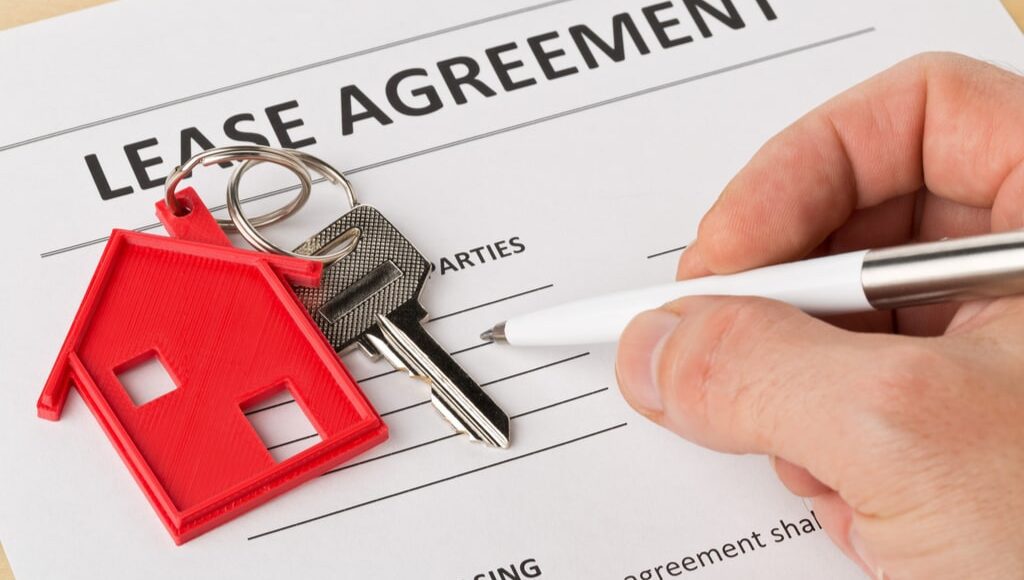The Lease-to-Own Option: Is It Right for You?
Table of Contents
The Lease-to-Own Option: Is It Right for You?
For renters who are considering homeownership but aren’t quite ready to take the leap, a lease-to-own option could be the perfect solution. This flexible path allows you to live in a home while working toward owning it. But is it the right choice for you? In this article, we’ll break down how lease-to-own agreements work, the pros and cons, and whether this option aligns with your financial and long-term goals.
What is a Lease-to-Own Agreement?
A lease-to-own agreement, sometimes called a rent-to-own agreement, allows tenants to rent a property with the option to purchase it at the end of the lease term. During the lease period, tenants typically pay rent, and sometimes a portion of that rent is set aside to go toward a down payment or the eventual purchase of the property. There’s also an option fee paid upfront that gives the renter the right to buy the home at a later date.
It’s important to differentiate between two types of agreements:
- Lease Option: This gives tenants the right, but not the obligation, to purchase the property at the end of the lease.
- Lease Purchase: This requires tenants to purchase the property once the lease term ends.
How Does Lease-to-Own Work?
In a lease-to-own arrangement, tenants sign a lease agreement just like a traditional rental, but with added terms that outline the option to purchase the home. Here’s a typical breakdown:
- Option Fee: Tenants pay an upfront, non-refundable fee (usually 3-5% of the home’s purchase price) for the right to buy the property later.
- Lease Term: The rental period usually lasts between 1-3 years, during which the tenant lives in the home as a renter.
- Purchase Price: The purchase price is either locked in at the start of the lease or will be determined at the time of purchase based on market value.
During the lease period, tenants can use the time to improve their credit score, save for a down payment, or simply “test drive” the home to make sure it’s the right fit. If they decide to buy, they can use the option fee and sometimes a portion of the rent paid toward the purchase price. At Tenant Builders, we offer lease-to-own options for highly qualified tenants, providing a flexible path to homeownership.
Benefits of Lease-to-Own
For many renters, lease-to-own agreements provide valuable advantages:
- Test Drive the Home: One of the biggest perks is being able to live in the home and the neighborhood before committing to a purchase. You get to know the area, the neighbors, and the house itself without the long-term commitment upfront.
- Build Equity Over Time: Some lease-to-own agreements allow a portion of your rent to go toward the eventual down payment, helping you build equity while you rent.
- Flexible Timeline: Lease-to-own gives renters more time to improve their finances, boost their credit score, or save for a down payment while still living in their desired home.
Potential Drawbacks of Lease-to-Own
While lease-to-own offers many benefits, there are also some potential downsides to consider:
- Risk of Losing Option Fee: The option fee is usually non-refundable. If you decide not to purchase the home at the end of the lease, you will forfeit that fee.
- Price Lock: Locking in a purchase price at the start of the lease could be a drawback if the market changes. You could end up paying more for the home than it’s worth if property values decline.
- Commitment to Buying: In a lease purchase agreement, you’re required to buy the home at the end of the lease. If your financial situation changes or you decide you don’t want the property, it could become a financial burden.
Who Should Consider Lease-to-Own?
Lease-to-own can be a great option for certain renters, but it’s not for everyone. It’s most suitable for:
- First-Time Homebuyers: If you’re new to homeownership and want to try living in a home before committing to buy, lease-to-own can be a great way to ease into the process.
- Renters with Improving Credit: If you’re working on improving your credit score or saving for a down payment, lease-to-own gives you more time to prepare while living in the home you want to buy.
- People Unsure About Long-Term Commitment: If you’re not ready to commit to homeownership or aren’t sure if the property is your forever home, lease-to-own gives you a flexible option to test it out before making the final decision.
Lease-to-Own with Tenant Builders
At Tenant Builders, we offer lease-to-own options for highly qualified tenants who are looking to transition into homeownership. Our homes are meticulously maintained and upgraded with modern features, so you can enjoy a high-quality rental experience while preparing to buy. We provide a clear and transparent process, ensuring you understand every step toward owning your home.
If you’re not quite ready to buy but want to work toward homeownership, Tenant Builders’ lease-to-own option could be the perfect fit for you.
Conclusion
Lease-to-own can be an excellent option for renters who want to become homeowners but need more time to prepare financially or ensure the home is right for them. However, it’s important to weigh the potential risks and benefits before committing to this type of agreement. If you’re considering lease-to-own, be sure to evaluate your financial situation, future goals, and long-term plans carefully.
If you’re interested in exploring Tenant Builders’ lease-to-own opportunities, contact us today to learn more about how we can help you transition from renting to owning.
Disclaimer: The content provided in this blog is for informational purposes only and does not constitute legal, financial, or real estate advice. Tenant Builders makes no representations or warranties about the accuracy, completeness, or suitability of the information presented. Lease-to-own agreements and other real estate transactions involve various risks, and readers are encouraged to seek professional advice tailored to their specific circumstances. Tenant Builders is not liable for any actions taken based on the content of this blog. Any reliance placed on such information is strictly at the reader’s own risk. We reserve the right to update or change this information at any time without prior notice.

